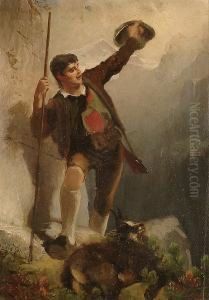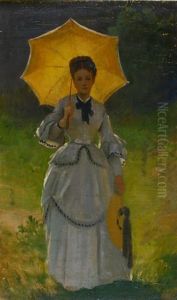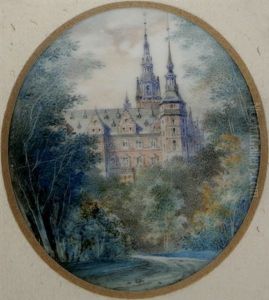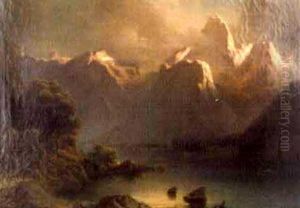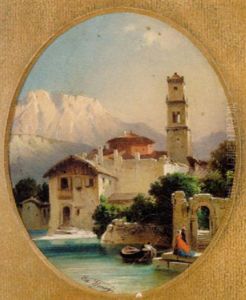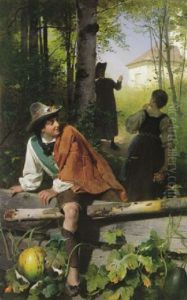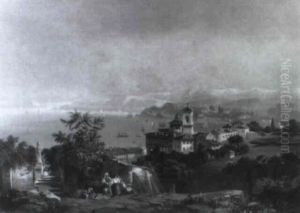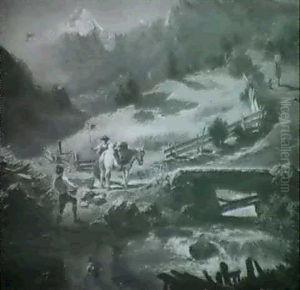Edward Young Paintings
Edward Young was not primarily known as a visual artist but as a distinguished English poet, critic, philosopher, and playwright, exemplifying the title of an art historian less than that of a literary figure. Born on July 3, 1683, in Upham, Hampshire, England, Young was the son of Edward Young, the rector of Upham and later Dean of Salisbury, and was educated at Winchester College and Oxford University.
After completing his studies, Young initially attempted a career in law but soon turned his attention to the church and literature. His early works included a satire, 'The Universal Passion,' which achieved much success. He is best known for his long poem 'Night Thoughts,' which is often considered his masterpiece. Published between 1742 and 1745, 'Night Thoughts' is a reflection on death and immortality and is written in blank verse. It was illustrated by the famous English artist William Blake in a later edition, indicating the poem's significant impact on the arts.
Young was also involved in the theater and wrote several plays, which were moderately successful. His work as a literary critic and philosopher is encapsulated in his 'Conjectures on Original Composition' published in 1759, which argued for the importance of originality in literature.
Despite his prolific career in literature, Edward Young's personal life was marked by sorrow and loss. He outlived his stepdaughter and wife, which deeply affected him and influenced the somber and reflective nature of much of his work, including 'Night Thoughts.'
Edward Young died on April 5, 1765, in Welwyn, Hertfordshire, England. Although he was not an artist in the traditional sense, his literary works have had a lasting impact on English literature and have occasionally intersected with the visual arts, as evidenced by Blake's illustrations. His influence extended into the Romantic period and beyond, as his contemplations on the sublime and the nature of creativity continued to resonate with artists and writers alike.
